As I mentioned in our recent newsletter, this autumn I’ve noticed a lot more White Cabbage Butterfly (Pieris rapae) in our gardens than usual. White Cabbage Butterfly lay their eggs on our Brassicas, such as broccoli and cauliflower. Little green caterpillars hatch from these eggs, and then get to work chewing holes through the plants.
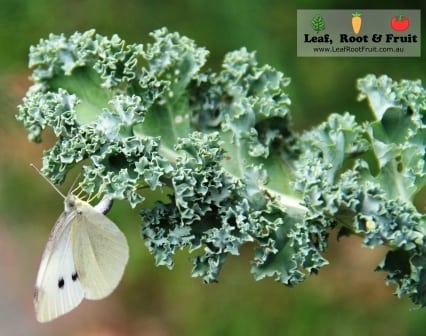
A few holes in the leaves is not a major concern for your Brassicas. However, the numbers of caterpillars this year, have left some of my plants stripped back to bare stems. There are several methods you can use to control White Cabbage Butterfly, as well as other caterpillars.
White Cabbage Butterfly or White Cabbage Moth?
Pieris rapae, the flying insect whose larvae eat your Brassica leaves is a butterfly, not a moth. So it is the White Cabbage Butterfly, not the White Cabbage Moth!
Decoy Plants for White Cabbage Butterfly
Since we have moved house, we haven’t planted Nasturtiums in our garden. This could be one of the reasons why we are having such a caterpillar problem in our garden. White Cabbage Butterfly love Nasturtiums, and will often seek these plants out to lay their eggs on, instead of the Brassicas.
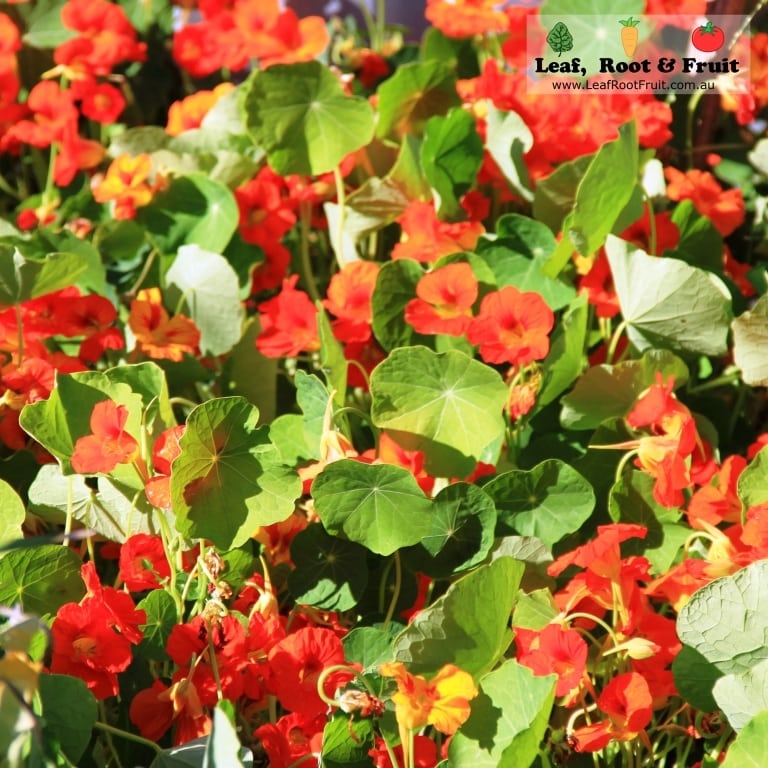
Using Dipel to Control White Cabbage Butterfly
If things get really desperate you can spray your plants with Dipel. This biological control is a bacterial stomach poison for all caterpillars, which is mixed with water and sprayed onto both sides of foliage. It must be ingested by the actively feeding caterpillar, which will then die 3-4 days later. It is not a contact spray. It is considered safe for beneficial insects, including ladybirds and bees as well as fish, birds, mammals and pets. Dipel contains Bacillus thuringiensis (Bt), which is a bacterial toxin and specific against most species of leaf eating caterpillars. Dipel is listed as an organic spray.
Search and Destroy Missions for White Cabbage Butterfly
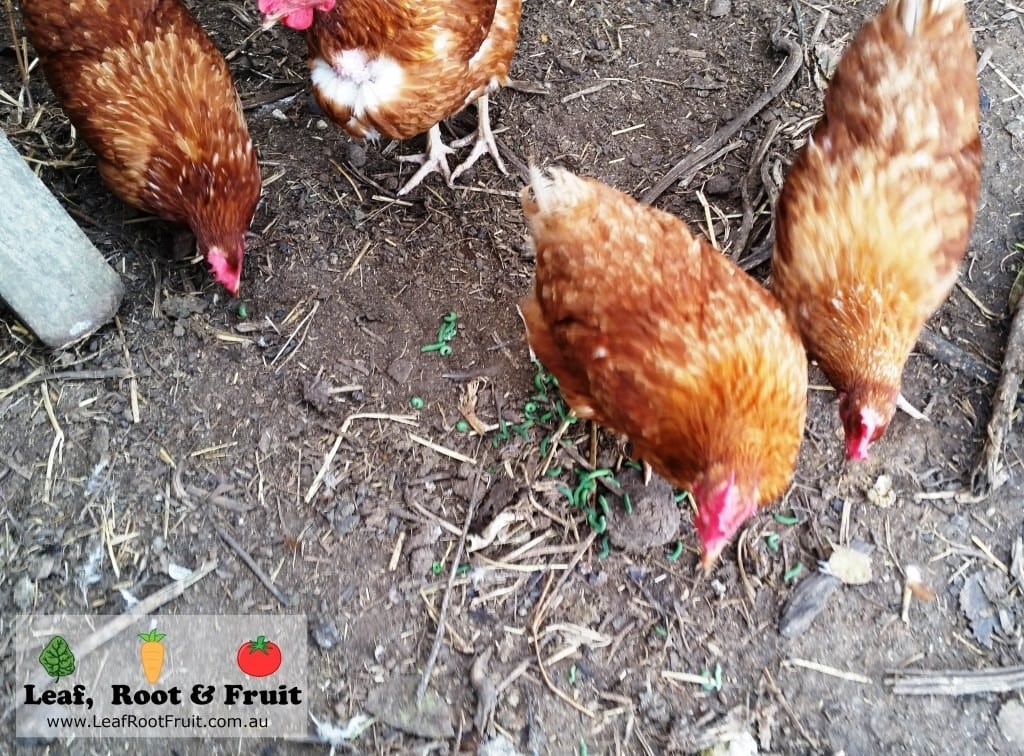
The easiest method to control caterpillars is via search and destroy missions. It’s a great activity for the kids to hunt them down. You can then squish them, or feed them to the chooks. It can become quite a game of hide and seek, as most of these caterpillars are masters of disguise. Make sure you inspect the undersides of leaves, as that’s where a lot of them hide during the day.
Allowing Parasitic Wasps to control White Cabbage Butterfly
This year, rather than squishing them all, I’ve been trying to relocate the cabbage moth to other plants that are less important to us. The idea is that by maintaining an abundance of these pests in the garden, predatory wasps will be encouraged to breed up and tackle the problem for me. This method was semi-successful, as I have noticed an increase in number of Predatory Wasps in the garden. Predatory Wasps inject their eggs under the caterpillar’s skin. Then their larvae hatch and consume the caterpillar from the inside out, eventually killing the caterpillar.
Here’s a video that I recorded a few weeks ago. It shows Parasitic Wasps hatching out of a Dainty Swallowtail Chrysalis.
Decoys for White Cabbage Butterfly
You can also try tricking the White Cabbage Butterfly with decoys such as fake moths and even eggshells! The theory is that using these decoys tricks the White Cabbage Moths into thinking the leaves are already home to caterpillars and are too much competition for more eggs. In reality, decoys don’t work and your precious broccoli will still be marauded by little green caterpillars.
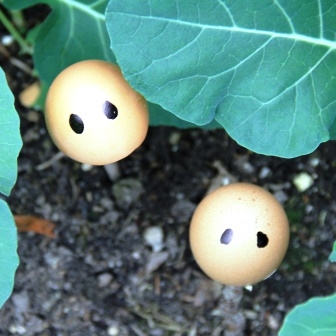
Netting
You can also use a fine netting to keep the moths from laying eggs on the plants. You will need to put the netting over as soon as you plant the seedlings. If you wait until there are signs of caterpillar damage, it is too late, as you just trap the emerging moths inside the netting. Which means they have to lay eggs on the plants inside it.
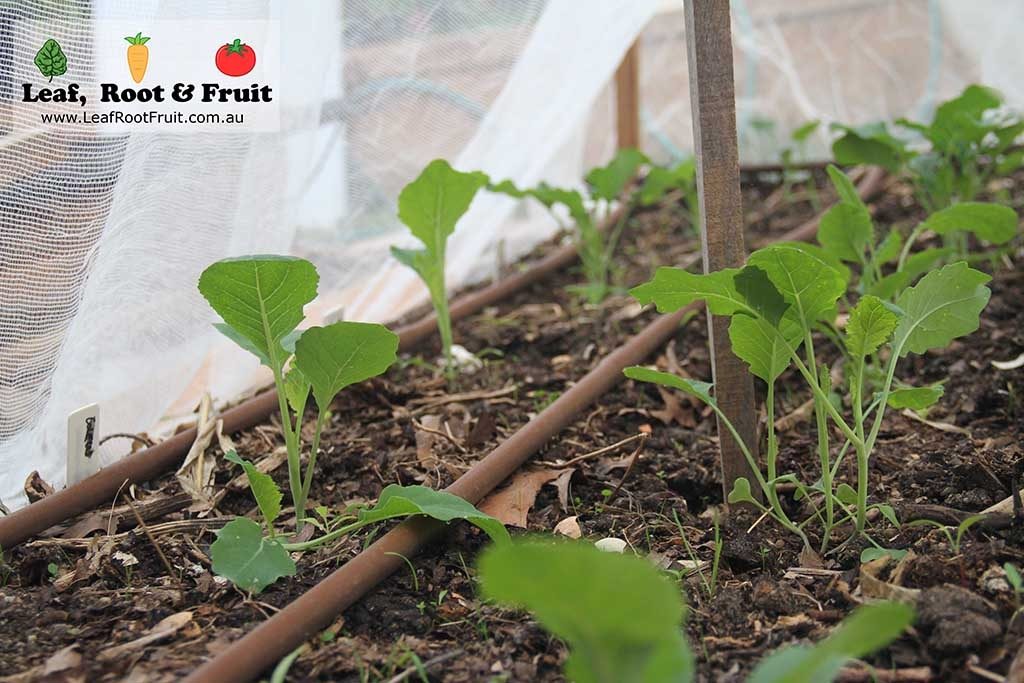
Or, Just Wait for the Cold Weather!
As the weather turns colder, pest species such as Aphids, Whitefly and White Cabbage Butterfly will become less of a problem. So try and avoid using sprays in the garden, if you can, and let nature take care of it for you.
Our white cabbage butterfly problem was eventually cleaned up by another much despised pest in Melbourne.
Do you have any tried and tested methods for controlling White Cabbage Butterfly? Please share your experiences with us in the comments section!
Want to know more about garden pests?
The idea of a relaxed approach to pest control will appeal to many of you. We have put together a three part blog post series on pests, predators and effective control methods.
If you would like further information on garden pests, then please sign up to our Science of Edible Gardening Workshop Series. The April workshop (repeated annually) in the series focuses heavily on population dynamics and controlling garden pests.


I luv to leave some broccoli go to seed, the yellow flowers attract heaps of bees and I scare if the butterflies Lay eggs!
Secondly I cut white butterflies out of margarine or ice cream containers, if you hang Two in the same spot a meter apart they are teralorial and work in pairs and will not go there!
Especially with free broccoli just meters away ha ha
Hi Dianne,
What great suggestions! Thanks for sharing.
Good Luck and Happy Gardening!
Duncan
Or create a cloche of netting! Spotlight has the perfect stuff for $2.50 a metre. Particularly good for allotments or if a garden has to be left alone for a few weeks.
Of course! We do this regularly for our clients, but for some reason neglected to include it in the guide. Thanks for pointing it out. It might be worth adding that you need to put the netting over as soon as you plant the seedlings. If you wait until there are signs of caterpillar damage, it is too late, as you just trap the emerging moths inside the netting. Which means they have to lay eggs on the plants inside it.
We’ve just moved from East Malvern to Langwarrin to a house with a bigger garden (and at last have some veggie beds). The whole place is covered with nasturtiums for a start, and I have never in my life seen so many white cabbage moths. Unbelievable! I’ve not quite got the veggie beds ready but am heartened by your advice to leave planting them out for a bit. In the meantime I continue the seek and destroy mission. Caterpillars beware
Thanks for sharing your experience Julia. Sounds like quite a Cabbage Moth haven you have there. Might be time to unleash some chooks on the garden?!!!
How do you get rid o the bugs do they die in the dirt or do you have to spray that too for two years they have destroy my kale and broccoli ant thing cabbage it very dis Herat ing is neem oil good
Hi Carolyn,
We take a more relaxed approach to gardening and generally don’t spray. This is probably best summed up through another one of our blog posts. I hope you find it useful.
Duncan
Could you please update your website to correct the article on white cabbage ‘moth’. It is a white cabbage butterfly. Cabbage moth is entirely different. I’ve noticed many people making this mistake, even professional gardening sites. It’s incredibly frustrating and spreads misinformation. Thanks, Dee
Hi Dee, thanks for highlighting out this common mistake. We’ve updated our article as per your request.
Good Luck & Happy Gardening!
More cabbage moth than I can recall this summer. I have an abundance of Nasturtium & Rosemary & these supposed decoys don’t work. A butterfly net on a sunny day! Catch as many as you can & destroy them under foot. I know I won’t eradicate these pests but I’m doing my bit.
Hi John,
Yes, there were certainly an abundance of them this summer. We found that netting our Brassicas was the best approach to protect the plants.
Happy Gardening!
Duncan
I have had hundreds of them in recent days around my raspberry bushes/vines whatever ????
Do they eat the leaves from these?? As I don’t grow brassicas only fruit and sum salad veg
Hi Michelle,
They are fantastic pollinators. So they are probably visiting the flowers for the nectar rather than to lay eggs. They will lay eggs on nasturtiums and a few other plants if they are desperate, but generally they prefer brassicas. Your raspberry canes should be fine.
Happy gardening
Duncan
You emphasize that the White Cabbage Butterfly is not a moth, yet ironically, you use the word ‘moth’ is some of your explanations!
Hi Bernard,
Thanks for pointing out there’s a few mistakes on the website. I’ll keep looking for and correcting them.
Good Luck & Happy Gardening!
Good morning Duncan. Thank you and all your readers for posting about the White Cabbage Moths. I live on Tamborine Mountain in Qld, and unfortunately have THOUSANDS of White Cabbage Moths all through my beautiful garden, very dishardening, as all of my Vegetables in my Green House have been attacked, I do have a fine netting at each end of the Green House, I thought this would help, and stop any insect problems, but alas, NO
The moths have also made their home in my Azalea bushes, thousands of them, it’s a huge problem, as I have about 50 Azalea’s.
I think they are killing my Azaleas. The Moths are also in my Hydrangeas and in fact in all of my garden.
Can anyone PLEASE, help with some advice on getting rid of them.
Thank you Kind regards, and happy gardening to all. Ildi
Hi Ildi,
Sorry to hear you are struggling with White Cabbage Butterfly. They are certinaly everywhere this year. I’m not sure that the WCB is attacking your azaleas? The adults are possibly visiting to feed on the nectar form the flowers, but they are probably not laying eggs on there.
Exclusion netting seems to be the way to keep them off vegetable such as Brassicas.
Good Luck & Happy Gardening
Duncan
Its March 9th, 2023. Bass Victoria. I have not seen this many Cabbage Butterflies than this summer.
I started eliminating them with a fly swatter, not enough surface area! An old Raquet ball racquet is ideal, I have been getting my forehand and backhand into good shape…I have hit hundreds. You don’t have to kill them, just a touch will disable them. Happy hunting.
Hi Steve,
We’ve had a crazy number of them in Central Victoria also. However, I think last year was slightly worse. I’m not sure that your method will put much of a dint in the population. We will stick to exclusion netting to keep them off the Brassicas. Each to their own though!
Happy Swatting
Duncan
last sumer i had big problems with the white cabbage butterfly and even devasted inside my green house as i left the door open and tried many things to try and stop them eating everything i planted and then I came across an old cardboard container of Cabbage dust —- the one you sprinkle the powder over the plants and thought hmmm what about if i mixed it with water and filtered it and used it as a spray and so I did I used 2 tbl spoons of the powder in warm water and then after it was disolved i put a feaspoon of dish liq soap and 1 tbl spoon vinegar and a few drops of chillie oil and YEAH that fixed them after 2 sprays and as i checked daily i didnt realize i had so many in the green house and so i would find dead grubs on the cabbage and cauli leaves as well as bok choy so yes this works but i would wash all my leaves before i cooked them . Now on the ingedients of the Cabbage dust which is also available in each for on its own but this dust had it all together and SAYS dont mix with water HMMMM WHY I WONDERED maybe its just too cheap and affective control of the WHITE Cabbage butterfly The only thing i did was mix with water and filter it so it didnt clog up my spayer Hmmm makes you wonder doesnt it MAYBE its water thats no good for us LOL a CHEAP AND EFFECTIVE SPRAY done this now for 2 seasons now
Hi Kenneth,
That’s certainly an interesting approach. Thanks for sharing. I would recommend that you always follow the directions on the packet of any garden chemicals. Some of them can be quite harmful to yourself or the environment if used incorrectly.
Happy Gardening
Duncan